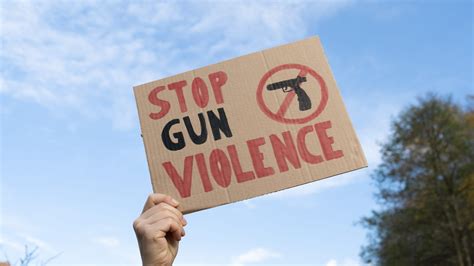
American tourists visiting the Dominican Republic, a popular vacation destination, are facing increased risks of violence, including homicide and sexual assault, prompting heightened concerns from the U.S. Embassy in Santo Domingo.
The U.S. Embassy in Santo Domingo has issued an alert highlighting the increasing number of violent crimes, urging American tourists to exercise increased caution. The advisory emphasizes that the Dominican Republic, while a beloved tourist spot, presents real safety concerns that travelers should be aware of.
“The wide availability of weapons, use, and trade of illicit drugs, and a lack of adequately trained police force contribute to the high crime rate,” the embassy stated. These factors create an environment where violent crime can occur more readily, impacting even tourist areas.
According to the Overseas Security Advisory Council (OSAC), the Dominican Republic has a Level 2 travel advisory, suggesting that Americans should exercise increased caution when traveling to the country.
Rising Crime Rates and Incidents
The U.S. Embassy and OSAC have documented several disturbing trends. Homicides are a significant concern, with Santo Domingo and other tourist hotspots experiencing high rates compared to other Caribbean islands. Sexual assaults are also a major issue, often underreported and difficult to prosecute.
“Violent crime, including armed robbery, homicide and sexual assault, is a concern throughout the Dominican Republic,” the embassy noted.
In recent years, there have been numerous reports of tourists being targeted in various criminal activities. These include armed robberies in broad daylight, assaults in hotel zones, and scams targeting visitors. While the Dominican Republic government has made efforts to address these issues, the underlying problems persist.
OSAC reports detail instances where tourists have been victims of express kidnappings, where individuals are forced to withdraw money from ATMs under duress. There have also been cases of tourists being drugged in bars and nightclubs, leading to theft or assault.
Factors Contributing to the Risks
Several factors contribute to the elevated crime rates in the Dominican Republic.
-
Weapon Availability: The widespread availability of firearms, both legal and illegal, is a significant concern. This increases the likelihood of confrontations escalating into violence.
-
Drug Trade: The Dominican Republic’s location makes it a transit point for drug trafficking, which contributes to organized crime and related violence.
-
Police Capacity: The lack of adequate training and resources for the police force hampers their ability to effectively combat crime. Corruption within law enforcement is also an ongoing issue.
-
Socioeconomic Factors: High levels of poverty and unemployment can drive individuals to commit crimes as a means of survival.
Specific Precautions for Tourists
Given these risks, the U.S. Embassy and OSAC recommend several precautions for American tourists visiting the Dominican Republic:
-
Increased Vigilance: Be aware of your surroundings at all times, especially in crowded or unfamiliar areas.
-
Avoid Risky Areas: Stay away from known high-crime areas, particularly at night. Consult local authorities or hotel staff for advice on safe zones.
-
Secure Valuables: Do not display expensive jewelry, watches, or large amounts of cash. Keep valuables in a secure location, such as a hotel safe.
-
Travel in Groups: When possible, travel in groups, especially when exploring unfamiliar areas or engaging in activities such as nightlife.
-
Limit Alcohol Consumption: Excessive alcohol consumption can impair judgment and make you a more vulnerable target for criminals.
-
Be Wary of Strangers: Be cautious when approached by strangers, especially those offering unsolicited assistance or goods.
-
Use Reputable Transportation: Use only licensed and reputable taxi services or ride-sharing apps. Avoid unmarked vehicles or accepting rides from strangers.
-
Inform Someone of Your Plans: Let friends or family members know your itinerary and check in with them regularly.
-
Trust Your Instincts: If a situation feels unsafe, remove yourself from it immediately.
U.S. Embassy Assistance
The U.S. Embassy in Santo Domingo provides assistance to American citizens who encounter problems while in the Dominican Republic. This includes:
-
Emergency Assistance: Providing support to Americans who are victims of crime, accidents, or other emergencies.
-
Passport Services: Assisting with the replacement of lost or stolen passports.
-
Consular Services: Providing notarial services, assistance with repatriation, and other consular support.
-
Information and Resources: Offering information on local laws, customs, and safety precautions.
In case of an emergency, American citizens can contact the U.S. Embassy in Santo Domingo or the U.S. Department of State. It’s advisable to enroll in the Smart Traveler Enrollment Program (STEP) to receive alerts and make it easier for the embassy to contact you in case of an emergency.
Official Statements and Data
The U.S. State Department provides detailed travel advisories for countries around the world, including the Dominican Republic. These advisories are based on assessments of safety and security risks, including crime rates, terrorism threats, and political instability.
According to the State Department, the Dominican Republic has a Level 2 travel advisory, which means Americans should exercise increased caution. This is due to crime, particularly violent crime.
Official data from the Dominican Republic’s National Police and Ministry of Tourism also provide insights into crime trends. While the government has made efforts to improve security in tourist areas, challenges remain.
Impact on Tourism
The increased safety concerns could have a significant impact on the Dominican Republic’s tourism industry, which is a major contributor to the country’s economy. If tourists perceive the country as unsafe, they may choose to travel to other destinations, leading to a decline in tourism revenue.
The Dominican Republic government is aware of these concerns and has taken steps to address them. These include increasing police presence in tourist areas, implementing stricter security measures, and launching public awareness campaigns to promote safe tourism practices.
However, more comprehensive and sustained efforts are needed to address the underlying factors that contribute to crime and improve the overall safety and security environment for tourists.
Alternative Destinations
For Americans who are concerned about safety risks in the Dominican Republic, there are alternative Caribbean destinations that may offer a safer travel experience. These include:
-
Aruba: Known for its low crime rates and high levels of safety and security.
-
Barbados: Generally considered a safe destination with a strong police presence.
-
Cayman Islands: Offers a high standard of living and a low crime rate.
-
St. Barts: An exclusive and upscale destination with a reputation for safety.
These destinations typically have lower crime rates and more robust security measures in place, providing a safer environment for tourists.
Conclusion
The Dominican Republic remains a popular vacation destination for American tourists, but it is essential to be aware of the increased safety risks. By exercising increased caution, taking necessary precautions, and staying informed, tourists can minimize their risk of becoming victims of crime. The U.S. Embassy in Santo Domingo provides valuable resources and assistance to American citizens, and it is crucial to utilize these services in case of an emergency. The Dominican Republic government must continue to address the underlying factors that contribute to crime and improve the overall safety and security environment for tourists to maintain its appeal as a top travel destination.
Frequently Asked Questions (FAQ)
1. What are the main safety concerns for American tourists in the Dominican Republic?
The main safety concerns include violent crime, such as armed robbery, homicide, and sexual assault. The U.S. Embassy in Santo Domingo has issued alerts about the increasing crime rates and advises tourists to exercise increased caution. Factors contributing to these risks include the wide availability of weapons, the drug trade, and an inadequately trained police force.
2. What does the U.S. Embassy in Santo Domingo recommend for American tourists visiting the Dominican Republic?
The U.S. Embassy recommends that American tourists:
- Exercise increased vigilance and be aware of their surroundings.
- Avoid risky areas, especially at night.
- Secure valuables and avoid displaying expensive items.
- Travel in groups when possible.
- Limit alcohol consumption.
- Be wary of strangers.
- Use reputable transportation services.
- Inform someone of their travel plans.
- Trust their instincts and remove themselves from unsafe situations.
3. What kind of assistance does the U.S. Embassy provide to American citizens in the Dominican Republic?
The U.S. Embassy in Santo Domingo provides emergency assistance, passport services, consular services (such as notarial services and assistance with repatriation), and information on local laws and safety precautions. They can also assist Americans who are victims of crime, accidents, or other emergencies.
4. What is the current U.S. State Department travel advisory level for the Dominican Republic?
The Dominican Republic has a Level 2 travel advisory, which means Americans should exercise increased caution due to crime, particularly violent crime.
5. What are some alternative Caribbean destinations that may offer a safer travel experience compared to the Dominican Republic?
Some alternative Caribbean destinations with lower crime rates and more robust security measures include Aruba, Barbados, the Cayman Islands, and St. Barts. Expanded and Enhanced Content:
Detailed Analysis of Crime Statistics:
To provide a clearer picture of the risks, a deeper dive into the crime statistics is essential. While the overall crime rate in the Dominican Republic might not always reflect the specific dangers faced by tourists, certain types of crimes directly target visitors. For example, petty theft, scams, and pickpocketing are more common in crowded tourist areas. Armed robberies, while less frequent, can have a devastating impact. Sexual assault, often underreported, is a serious concern, particularly in nightlife districts and resort areas where alcohol consumption is high.
Comparing crime statistics between different tourist destinations in the Dominican Republic is also crucial. Cities like Santo Domingo and Punta Cana, despite their popularity, tend to have higher crime rates than more secluded or upscale resort areas. This data helps tourists make informed decisions about where to stay and what precautions to take.
The Dominican Republic’s National Police and Ministry of Tourism compile crime statistics, but accessing and interpreting this data can be challenging. Independent organizations like OSAC and international security firms often provide more detailed and objective analysis. It is also important to consider the limitations of crime statistics. Underreporting, particularly of sexual assault and petty theft, can skew the data and make it difficult to assess the true extent of the problem. Changes in reporting practices or law enforcement strategies can also affect crime rates, making it important to analyze long-term trends rather than focusing on short-term fluctuations.
Root Causes of Crime: Socioeconomic Factors and Corruption:
Understanding the root causes of crime is essential for developing effective prevention strategies. Socioeconomic factors play a significant role in driving crime rates in the Dominican Republic. High levels of poverty, unemployment, and inequality can create a breeding ground for criminal activity. Lack of access to education and job opportunities can lead individuals to turn to crime as a means of survival.
Corruption within law enforcement and the judicial system also exacerbates the problem. When police officers are poorly trained, underpaid, or susceptible to bribery, they are less likely to effectively combat crime and more likely to engage in corrupt practices. Corruption can also undermine the justice system, making it difficult to prosecute criminals and deter future offenses.
Addressing these root causes requires a multi-faceted approach that includes investments in education, job training, and social programs. Strengthening law enforcement and the judicial system through training, reforms, and anti-corruption measures is also essential. International cooperation and assistance can play a vital role in supporting these efforts.
The Role of Organized Crime and Drug Trafficking:
The Dominican Republic’s geographic location makes it a transit point for drug trafficking from South America to North America and Europe. This illegal drug trade contributes to organized crime and related violence. Drug cartels often operate in the country, using it as a base for their operations and engaging in money laundering and other illicit activities.
The presence of organized crime can have a ripple effect, increasing crime rates and undermining the rule of law. Drug-related violence can spill over into tourist areas, putting visitors at risk. Organized crime groups may also engage in extortion, human trafficking, and other forms of criminal activity that affect the tourism industry.
Combating organized crime and drug trafficking requires a coordinated effort involving law enforcement, intelligence agencies, and international partners. Strengthening border security, disrupting drug supply chains, and targeting the financial assets of criminal organizations are crucial steps. Community-based prevention programs can also help to reduce the demand for drugs and prevent young people from becoming involved in criminal activity.
The Impact of Tourism on Local Communities:
While tourism is a major contributor to the Dominican Republic’s economy, it can also have negative impacts on local communities. Uncontrolled tourism development can lead to environmental degradation, displacement of local residents, and cultural disruption. The influx of tourists can also strain local resources, such as water and electricity, and contribute to inflation.
In some cases, tourism can exacerbate social inequalities, with the benefits of tourism concentrated in the hands of a few wealthy elites while local communities struggle to make a living. This can lead to resentment and social unrest.
Sustainable tourism practices can help to mitigate these negative impacts. This includes promoting eco-tourism, supporting local businesses, respecting local cultures, and ensuring that tourism development benefits local communities. Engaging local communities in the planning and decision-making process is also essential.
Cybercrime and Scams Targeting Tourists:
In addition to traditional forms of crime, tourists in the Dominican Republic are also vulnerable to cybercrime and scams. These can include online scams, credit card fraud, and identity theft. Tourists may be targeted through phishing emails, fake websites, or social media scams.
To protect themselves from cybercrime, tourists should:
- Use strong passwords and avoid using public Wi-Fi networks for sensitive transactions.
- Be wary of unsolicited emails or messages.
- Verify the authenticity of websites before entering personal information.
- Monitor their credit card statements for suspicious activity.
- Use a virtual private network (VPN) to encrypt their internet traffic.
Scams targeting tourists can take many forms, including fake tour operators, counterfeit goods, and inflated prices. Tourists should be cautious when dealing with unfamiliar vendors and avoid making large cash payments. It is also important to be aware of common scams and to report any suspicious activity to the authorities.
Detailed Recommendations for Safe Travel:
Beyond the general precautions recommended by the U.S. Embassy, there are several specific steps that tourists can take to enhance their safety:
- Research Your Accommodation: Choose hotels or resorts that have good security reputations and positive reviews. Read reviews from other travelers to get an idea of the security measures in place.
- Use Secure Transportation: Arrange airport transfers and transportation through reputable companies or your hotel. Avoid hailing taxis on the street, especially at night.
- Be Discreet with Technology: Avoid using expensive smartphones or tablets in public places, especially in crowded areas. Be aware of your surroundings when using ATMs or credit card machines.
- Learn Basic Spanish Phrases: Knowing a few basic Spanish phrases can help you communicate with locals and navigate unfamiliar situations.
- Register with STEP: Enroll in the Smart Traveler Enrollment Program (STEP) to receive travel alerts and make it easier for the U.S. Embassy to contact you in case of an emergency.
- Photocopy Important Documents: Make copies of your passport, driver’s license, and other important documents and store them separately from the originals.
- Purchase Travel Insurance: Consider purchasing travel insurance that covers medical expenses, trip cancellations, and theft of belongings.
- Stay Informed: Monitor local news and social media for any safety alerts or warnings.
Mental Health Support:
Experiencing a crime or traumatic event while traveling can have a significant impact on mental health. It is important for tourists to have access to mental health support services in case they need them.
The U.S. Embassy can provide a list of local mental health professionals who are familiar with the needs of American citizens. Online therapy platforms and international crisis hotlines can also provide support.
Legal Considerations and Rights:
If a tourist is a victim of a crime in the Dominican Republic, it is important to understand their legal rights and options. They have the right to report the crime to the police, request medical assistance, and seek legal representation.
The U.S. Embassy can provide information on local laws and legal procedures. They can also help to connect tourists with attorneys who are experienced in representing foreign nationals.
It is important to keep in mind that the Dominican Republic legal system may be different from the U.S. legal system. Tourists should be prepared to navigate unfamiliar procedures and cultural differences.
Long-Term Solutions:
Addressing the safety concerns in the Dominican Republic requires a long-term commitment from the government, law enforcement, and the tourism industry. This includes:
- Investing in Education and Job Training: Providing opportunities for young people to acquire the skills and knowledge they need to succeed in the workforce can help to reduce poverty and crime.
- Strengthening Law Enforcement: Improving the training, equipment, and resources of the police force can help them to effectively combat crime.
- Combating Corruption: Implementing anti-corruption measures and promoting transparency in government can help to build trust and accountability.
- Promoting Sustainable Tourism: Encouraging responsible tourism practices that benefit local communities can help to reduce the negative impacts of tourism.
- Enhancing Security in Tourist Areas: Increasing police presence, installing security cameras, and improving lighting in tourist areas can help to deter crime.
- Raising Awareness: Educating tourists about the risks and precautions they should take can help to prevent them from becoming victims of crime.
By working together, the Dominican Republic can create a safer and more enjoyable experience for tourists while also improving the lives of its citizens.
These detailed additions enhance the article, providing a more comprehensive understanding of the safety challenges in the Dominican Republic, their underlying causes, and potential solutions. They also offer more specific advice for tourists to stay safe and informed while visiting the country.









